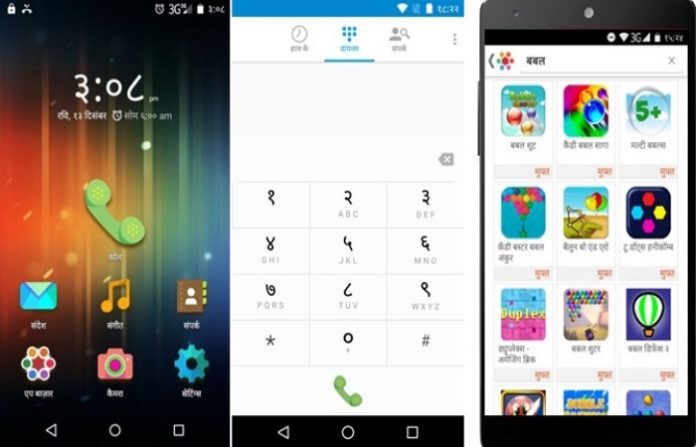

The ‘Made in India’ operating system, Indus OS, is one of the world’s first multilingual operating system. It supports 12 major Indian languages.
It was initially launched in 2014 for Android, named Firstouch. It was glorified when it raised $5 million in a series A funding from investors led by Omidyar Network in January 2015; when Micromax had partnered with them and announced a few smartphones.
Now, five of India’s top OEM’s; Micromax, Swipe, Celkon, Karbonn and Intex have launched more than 30 smartphones with Indus as it’s OS.
Indus OS holds around 6.3% of the market share, making it India’s second-most popular smartphone platform, according to Counterpoint Research. It is behind Android, but is well ahead of Xiaomi’s MIUI and Cyanogen, as well as iOS.
With the tremendous growth of smartphones in India, English-based operating systems with translated UI elements and regional language keyboards are not enough to satisfy a market as diverse as India. Indus OS moves towards this demand of multi-linguilality. It is designed for vernacular users who are first-time smartphone users.
Features of Indus OS
It focuses on overcoming the language barriers and making the use of smartphones much easier than it already is. Many people opt-out of using a smartphone solely because they are intimidated by English language. Now, they can freely use a smartphone that would allow them to use their own language.
Indus OS supports 12 Indian languages, which are- Hindi, Marathi, Punjabi, Gujarati, Kannada, Bengali, Urdu, Telugu, Malayalam, Odia, Tamil, and Assamese with English option as well.
Unlike other Android skins that support Indian languages, Indus OS will have menu items, icon texts, etc. too appearing in the chosen regional language. Add to this, there will be a customised launcher, messaging app and dealer so that the users are not intimidated by complex structure.
The keyboard comes with a prediction and transliteration, which are quintessential for new users. The messaging app will have ‘swipe to translate’ and ‘swipe to transliterate’ feature.
The highlight, though, is the company’s own app store, ‘App Bazaar’, which allows the user to download apps without the preliminary step of signing in. There are more than 30,000 apps-including Facebook, Twitter, WhatsApp and other games. The listing here will also be displayed in the chosen regional language.
The distinguished feature of the App Bazaar is that it allows the users to download paid apps and games via their mobile balance (pre-paid) or get billed for it (post-paid). This is convenient for both the users and an incentive for app developers as well.
Future Possibilities
Rakesh Deshmukh, one of the founders of Indus OS, in an interview with Techcrunch said, “Our goal is to get OEMs to sign up. Now we want to go ahead and work with Chinese and international brands.”
They have also tied up with the Government of India’s Department of Electronic and Information Technology (DeitY) to develop a better text-to-speech algorithm and content platform.
[Source:-Scrool IIT]
